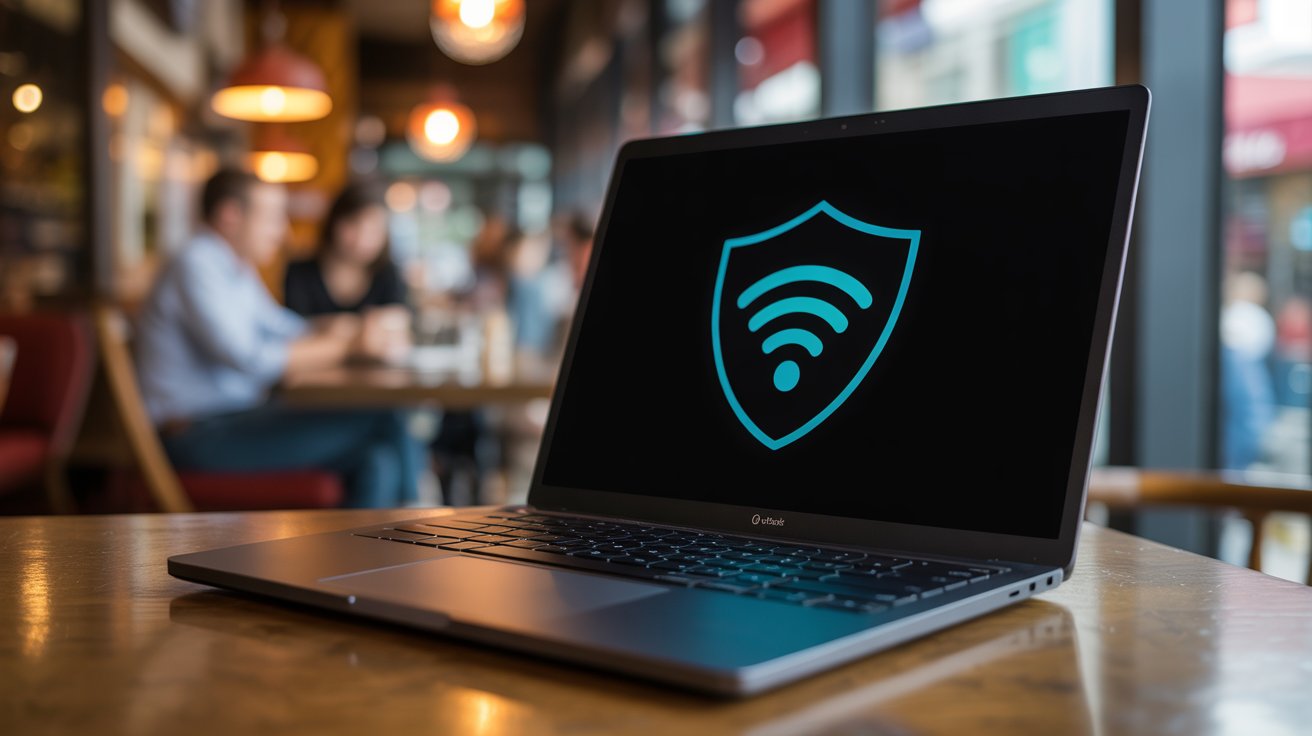Public Wi-Fi is a modern convenience. It's also a digital minefield. Connecting to that "Free_Airport_WiFi" is like having a private conversation in the middle of a crowded, noisy room. You have no idea who is listening.
Mistake 1: Trusting the Network Name
You see two networks: `Cafe_WiFi` and `Cafe_WiFi_Free`. One could be a hacker's laptop in an "Evil Twin" attack. The moment you connect, all your traffic passes through their device.
The Calm Fix: Treat every network as untrusted. Ask an employee for the *exact* name of their official Wi-Fi.
Mistake 2: Leaving File Sharing Turned On
On a public network, this is a wide-open door. You are actively broadcasting your device's name (AirDrop, File and Printer Sharing) to every other computer on the network.
The Calm Fix: *Before* you connect, go into your System Settings and turn **all** sharing services off. On Windows, set your network profile to "Public."
Mistake 3: Thinking the `HTTPS` Padlock is Enough
The 🔒 padlock is good, but it's not a complete solution. An eavesdropper can still see **every site you visit** (`your-bank.com`, `health-forum.com`), even if they can't read your password. They can build a deep profile of your activity.
The Calm Fix: The padlock encrypts one conversation. A VPN encrypts the *entire room*.
Mistake 4: Letting Your Device "Auto-Connect"
This is the most dangerous mistake. Your phone saves "Cafe_WiFi" and constantly "shouts" for it in public. A hacker can set up a network with that *exact name*, and your device will auto-connect without asking.
The Calm Fix: Be mindful. Go into your Wi-Fi settings regularly and "Forget" networks you are no longer using.

